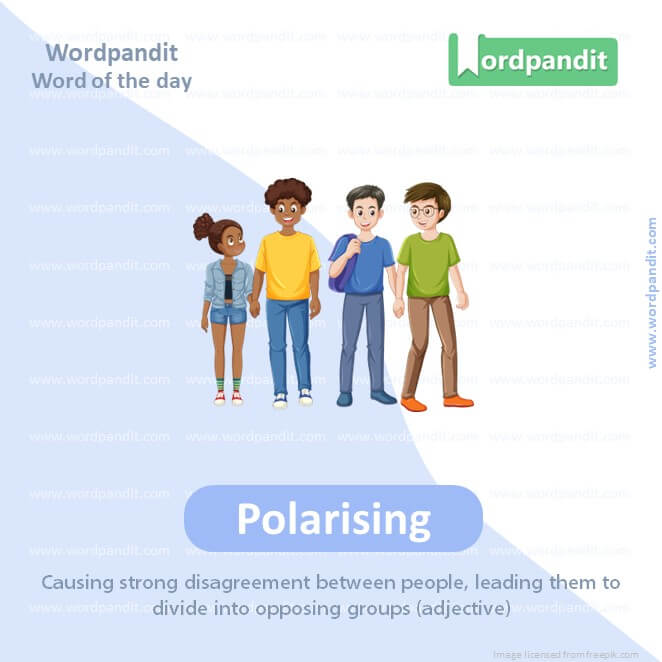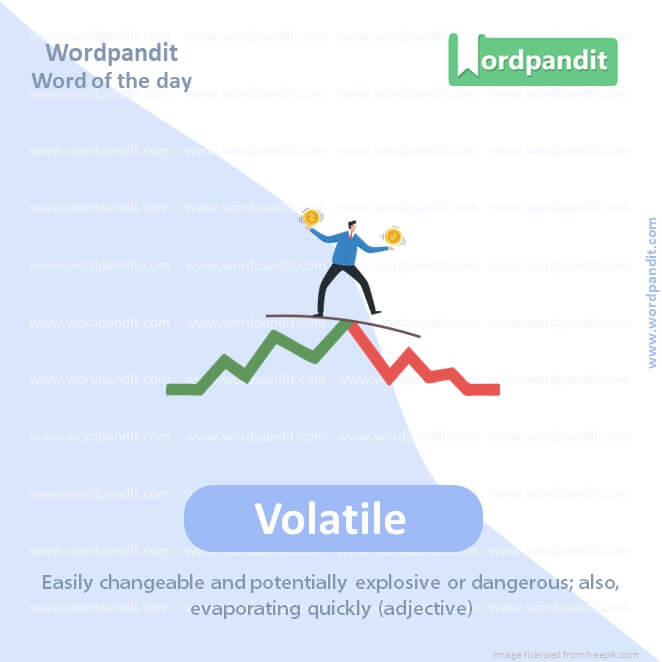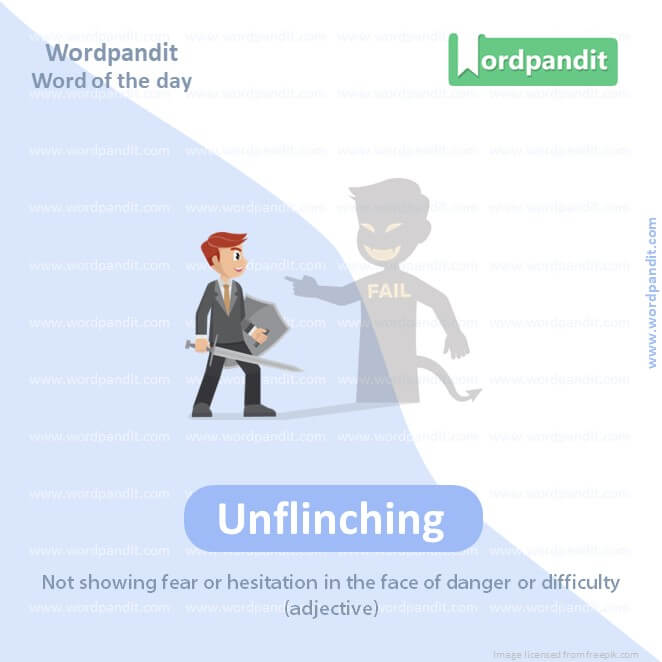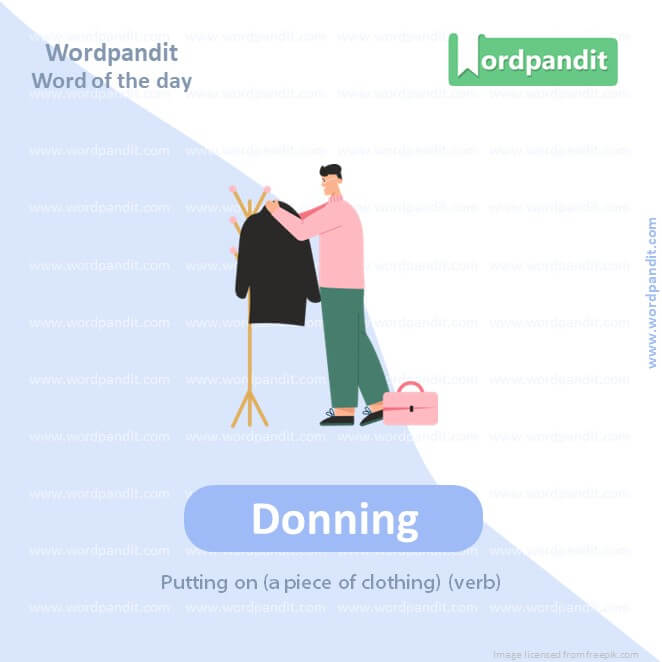Daily Vocabulary Words: List of Daily Used Words in Leading Indian Newspapers
Hi there. Welcome to this special section @ Wordpandit. Our endeavour here is straightforward: highlighting daily vocabulary words that you would come across in leading newspapers in the country. We have included the following newspapers in our selection:
• The Times of India
• The Economic Times
• Hindustan Times
• Mint
• Indian Express
We are putting in extensive work to develop your vocabulary. All you have to do is be regular with this section and check out this post daily. This is your repository of commonly used words; essentially, we are posting a list of daily used words. Hence, this has significant practical application as it teaches you words that are commonly used in leading publications mentioned above.
Visit the website daily to learn words from leading Indian newspapers.

WORD-1: Polarising
CONTEXT: The spike in tensions with Iran coincides with a polarising Pakistan general election just weeks away.
SOURCE: Hindustan Times
EXPLANATORY PARAGRAPH: Imagine you and your friends are choosing between chocolate and vanilla ice cream. Some of you really love chocolate and think it’s the best, while others love vanilla and don’t like chocolate at all. This is like the word “polarising.” It means something that makes people have very different opinions, like loving it a lot or not liking it at all.
MEANING: Causing strong disagreement between people, leading them to divide into opposing groups (adjective).
PRONUNCIATION: POH-luh-rye-zing
SYNONYMS: Divisive, Contentious, Controversial, Debatable, Disputable.
USAGE EXAMPLES:
1. The new cartoon show was polarising; some kids loved it, while others didn’t find it interesting.
2. Her polarising speech at the school debate made half the audience clap and the other half boo.
3. The issue of homework is quite polarising among students.
4. Polarising topics like pizza toppings can lead to fun but heated discussions in a party.

WORD-2: Volatile
CONTEXT: The situation is volatile also because of the wider West Asia factor.
SOURCE: Hindustan Times
EXPLANATORY PARAGRAPH: Think of a balloon that pops easily if you touch it too roughly. “Volatile” is like that, but for situations or people. It means something can change very quickly and unpredictably, sometimes even causing trouble, like how a calm day can suddenly turn into a rainy one.
MEANING: Easily changeable and potentially explosive or dangerous; also, evaporating quickly (adjective).
PRONUNCIATION: VOH-luh-tyle
SYNONYMS: Unstable, Explosive, Erratic, Unpredictable, Inconsistent.
USAGE EXAMPLES:
1. The weather is very volatile; it was sunny in the morning, and now it’s raining.
2. He has a volatile temper; one minute he’s happy, the next he’s angry.
3. The stock market is volatile; prices go up and down very fast.
4. Volatile chemicals should be handled carefully in the lab.

WORD-3: Unflinching
CONTEXT: The dazzle of AI has blinded the BJP government to the state of the bottom 20 per cent because it has the unflinching support of a steel frame called RSS.
SOURCE: Indian Express
EXPLANATORY PARAGRAPH: Imagine you’re trying to walk across a wobbly bridge, and you’re scared, but you keep going without stopping. “Unflinching” means being very brave and not showing fear, even when something is scary or hard.
MEANING: Not showing fear or hesitation in the face of danger or difficulty (adjective).
PRONUNCIATION: un-FLINCH-ing
SYNONYMS: Fearless, Steadfast, Resolute, Courageous, Determined.
USAGE EXAMPLES:
1. The firefighter was unflinching as he ran into the burning building to save the kitten.
2. She gave an unflinching performance during her first piano recital.
3. Despite the challenge, he remained unflinching in his decision to climb the mountain.
4. The unflinching dedication of doctors during the health crisis was admirable.

WORD-4: Donning
CONTEXT: Prime Minister Narendra Modi now donning the mantle of Hindu kingship, has the ability to get millions of people to play their parts for an audience of One, with all institutions, corporations, sects, civil society, media singing the same tune.
SOURCE: Indian Express
EXPLANATORY PARAGRAPH: “Donning” is like when you get dressed in your favorite superhero costume. It means putting on clothes, but it sounds a bit more special, like you’re getting ready for something important or exciting.
MEANING: Putting on (a piece of clothing) (verb).
PRONUNCIATION: DON-ing
SYNONYMS: Wearing, Dressing, Decking, Attiring, Cladding.
USAGE EXAMPLES:
1. She was donning her prettiest dress for the birthday party.
2. He started donning his gear for the football match.
3. Before entering the lab, they were donning protective suits.
4. The children enjoyed donning costumes for the school play.
WORD-5: Deracinated
CONTEXT: Worshipping idols is central to Hinduism, no matter what deracinated intellectuals might tell you.
SOURCE: Indian Express
EXPLANATORY PARAGRAPH: Imagine a plant being pulled out from its soil, where it was growing. “Deracinated” is like that but for people. It means someone is removed from their home or usual surroundings, kind of like not being where they normally belong.
MEANING: Uprooted from one’s natural geographical, social, or cultural environment (adjective).
PRONUNCIATION: deh-RAH-si-nay-ted
SYNONYMS: Uprooted, Displaced, Transplanted, Extracted, Removed.
USAGE EXAMPLES:
1. The family felt deracinated after moving to a new country.
2. The old tree was carefully deracinated to be replanted in the park.
3. Deracinated from his hometown, he felt lonely in the big city.
4. The museum displayed artifacts that seemed deracinated from their original culture.
WORD-6: Dissipate
CONTEXT: A dialling down of tensions will gather traction and, on the surface, tensions will dissipate as rapidly as they accumulated.
SOURCE: Hindustan Times
EXPLANATORY PARAGRAPH: Imagine you blow a big bubble with your gum, and then it pops and disappears. “Dissipate” is like that. It means something that goes away or disappears, like when fog goes away in the morning sun.
MEANING: To disappear or cause to disappear (verb); also used for scattering or spreading out widely (verb).
PRONUNCIATION: DISS-ih-pate
SYNONYMS: Disperse, Vanish, Evaporate, Scatter, Dissolve.
USAGE EXAMPLES:
1. The morning mist dissipated as the sun rose.
2. His anger dissipated after he took a few deep breaths.
3. The crowd dissipated quickly once the concert ended.
4. The smoke dissipated into the air, leaving a clear sky.

WORD-7: Vigilant
CONTEXT: The Opposition parties and the media may not be vigilant, but the poor and middle classes — the 93 per cent — are watching and waiting.
SOURCE: Indian Express
EXPLANATORY PARAGRAPH: Think of a superhero who keeps watching over the city, ready to help at any time. “Vigilant” means being very careful and always watching for danger or problems, like the superhero who protects people.
MEANING: Keeping careful watch for possible danger or difficulties (adjective).
PRONUNCIATION: VIJ-ih-luhnt
SYNONYMS: Watchful, Alert, Attentive, Cautious, Observant.
USAGE EXAMPLES:
1. The vigilant lifeguard kept an eye on the swimmers.
2. You must be vigilant for signs of illness in your pets.
3. Parents are vigilant while their children play near the water.
4. Being vigilant at night is important for security guards.
WORD-8: Ostentatiously
CONTEXT: Penance and austerities performed ostentatiously out of pride for the sake of gaining honor and recognition are all in the mode of passion.
SOURCE: Indian Express
EXPLANATORY PARAGRAPH: Imagine someone wearing a big, shiny crown and a bright, sparkly dress, showing off to everyone. “Ostentatiously” means doing something in a very showy way to impress others or get attention, like wearing something really fancy just to be noticed.
MEANING: In a showy or exaggerated way to attract notice or impress others (adverb).
PRONUNCIATION: os-ten-TAY-shus-lee
SYNONYMS: Flashily, Showily, Flamboyantly, Extravagantly, Pretentiously.
USAGE EXAMPLES:
1. He ostentatiously showed off his new bike to his friends.
2. The celebrity walked down the red carpet ostentatiously.
3. They ostentatiously decorated their house for the party.
4. She spoke about her achievements ostentatiously at the reunion.
WORD-9: Consecration
CONTEXT: The pran pratishtha following the foundation stone of Ayodhya marks the consecration of Hinduism as a political religion pure and simple.
SOURCE: Indian Express
EXPLANATORY PARAGRAPH: Think about a special ceremony where a place like a church or an object becomes very special and is set aside for a special purpose. “Consecration” is like that. It’s when something is made holy or very special through a special ceremony.
MEANING: The act of making something sacred or dedicating it to a religious purpose (noun).
PRONUNCIATION: kon-suh-KRAY-shun
SYNONYMS: Sanctification, Blessing, Dedication, Hallowing, Sacralization.
USAGE EXAMPLES:
1. The consecration of the new church was a grand event.
2. The priest performed the consecration of the altar.
3. There was a ceremony for the consecration of the ancient temple.
4. The artifact underwent a consecration ritual before being placed in the shrine.
WORD-10: Circumference
CONTEXT: The Ram whose role in Indian cultural and spiritual life was one whose centre was everywhere and circumference nowhere has now been anchored to a centre.
SOURCE: Indian Express
EXPLANATORY PARAGRAPH: Imagine drawing a circle with a crayon. The line you draw all around the circle is the “circumference.” It’s like the edge of a circle or a round shape.
MEANING: The distance around the edge of a circle or a round object (noun).
PRONUNCIATION: sur-KUM-fur-uhns
SYNONYMS: Perimeter, Boundary, Edge, Outskirts, Periphery.
USAGE EXAMPLES:
1. They measured the circumference of the round table to buy a tablecloth.
2. The children ran around the circumference of the playground.
3. The garden had a path following its circumference.
4. The circumference of the pizza was surprisingly large.
Vocabulary Words in English
In the kaleidoscopic world of language, the thread of ‘vocabulary words in English’ weaves a rich tapestry. These words, the building blocks of communication, lend themselves to the eloquence and effectiveness of our speech and writing. Despite their significance, mastering ‘vocabulary words in English’ can sometimes be daunting, but with strategic approach, the process can be greatly simplified.
Learning ‘vocabulary words in English’ goes far beyond rote memorization. It requires an integrated approach that encompasses understanding and using the words. Consuming a diverse range of English materials such as novels, news articles, movies, music, and online content can acquaint you with words in actual use, helping you perceive both their meaning and usage in different contexts.
Furthermore, incorporating memory-enhancing techniques can add impactful strides to your journey of mastering ‘vocabulary words in English’. Methods such as the Leitner System or flashcards can bolster the memory retention of these words. Meanwhile, using mnemonic devices, associating words with unique stories or images, can help in retaining the ‘vocabulary words in English’ in long-term memory.
Another key to deciphering ‘vocabulary words in English’ is by practicing them in real-world contexts. Incorporate the new words into your daily conversations, written emails, or social media posts. Not only will this reinforce the meanings and applications, but also boost your confidence in using them.
In essence, understanding ‘vocabulary words in English’ is a continual journey that calls for persistent commitment, diverse learning approach, and ample practice. As you indulge in this exploration, you will find your command over the ‘vocabulary words in English’ becoming stronger, leading to more confident and dynamic communication. Remember – in the world of language, words are your faithful companions, and the more you engage with them, the more they’ll reveal their richness to you.













